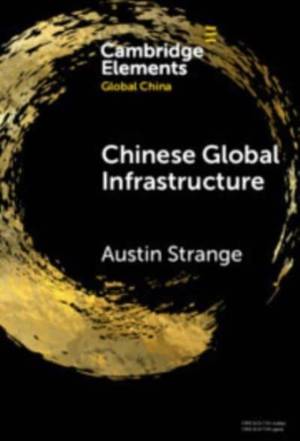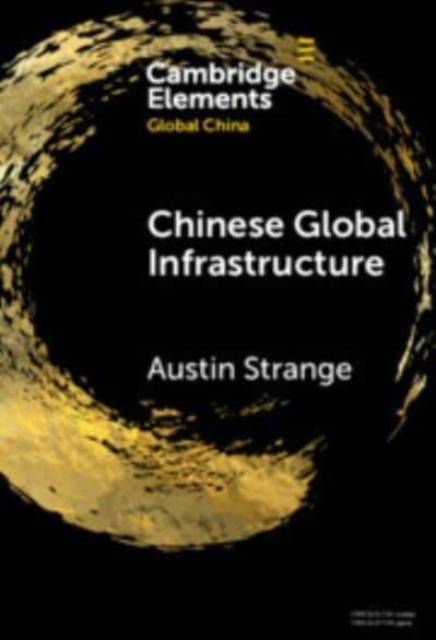
Door een staking bij bpost kan je online bestelling op dit moment iets langer onderweg zijn dan voorzien. Dringend iets nodig? Onze winkels ontvangen jou met open armen!
- Afhalen na 1 uur in een winkel met voorraad
- Gratis thuislevering in België vanaf € 30
- Ruim aanbod met 7 miljoen producten
Door een staking bij bpost kan je online bestelling op dit moment iets langer onderweg zijn dan voorzien. Dringend iets nodig? Onze winkels ontvangen jou met open armen!
- Afhalen na 1 uur in een winkel met voorraad
- Gratis thuislevering in België vanaf € 30
- Ruim aanbod met 7 miljoen producten
Zoeken
€ 104,95
+ 209 punten
Uitvoering
Omschrijving
Infrastructure is at the heart of China's presence in global development and is also central to larger debates about Chinese influence. This Element provides a comprehensive account of major Chinese government-financed infrastructure projects in the Global South since 1949. Using new datasets, it demonstrates that Chinese global infrastructure is distinct in terms of its historical tenacity and massive contemporary scope. But this does not imply that contemporary Chinese global infrastructure or the Belt and Road Initiative should be studied in a vacuum. Historical and comparative perspectives show that contemporary projects often emerge based on similar political logics to those that shaped infrastructure investment in earlier periods of Chinese history and other international contexts. The Element then examines how infrastructure projects have created both purposeful and unintended sources of influence by serving as valuable but risky political capital for host country governments as well as the Chinese government. This title is also available as Open Access on Cambridge Core.
Specificaties
Betrokkenen
- Auteur(s):
- Uitgeverij:
Inhoud
- Aantal bladzijden:
- 104
- Taal:
- Engels
- Reeks:
Eigenschappen
- Productcode (EAN):
- 9781009486910
- Verschijningsdatum:
- 21/12/2023
- Uitvoering:
- Hardcover
- Formaat:
- Genaaid
- Afmetingen:
- 152 mm x 229 mm
- Gewicht:
- 312 g

Alleen bij Standaard Boekhandel
+ 209 punten op je klantenkaart van Standaard Boekhandel
Beoordelingen
We publiceren alleen reviews die voldoen aan de voorwaarden voor reviews. Bekijk onze voorwaarden voor reviews.











